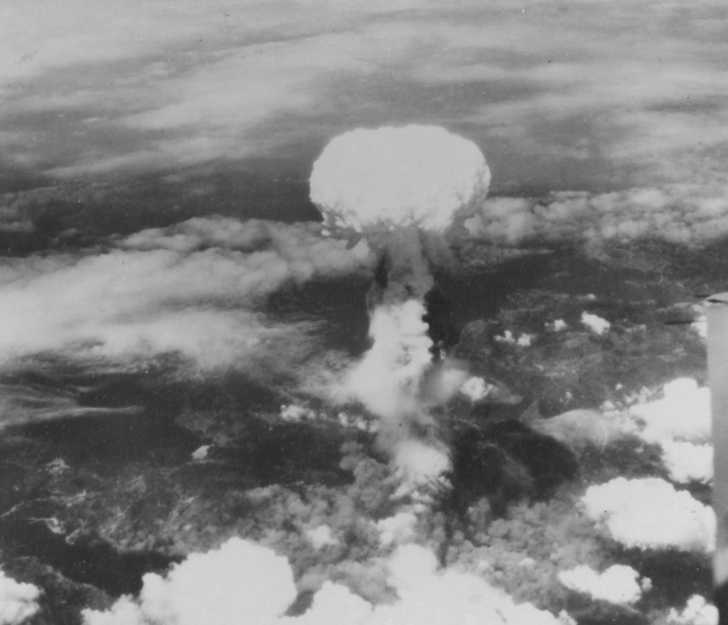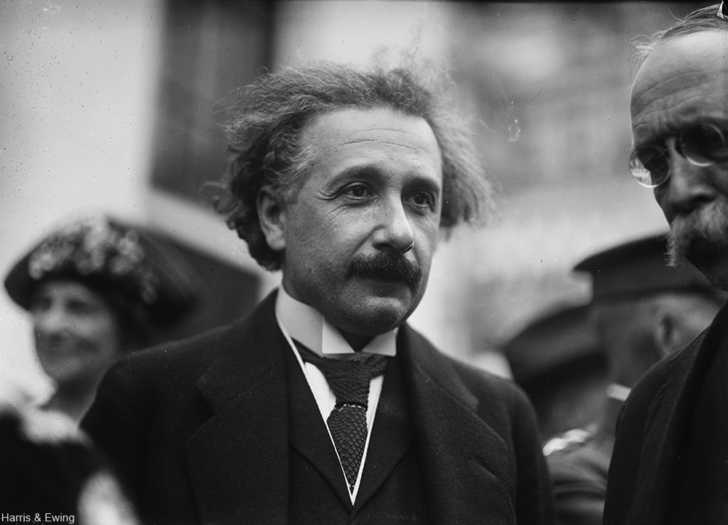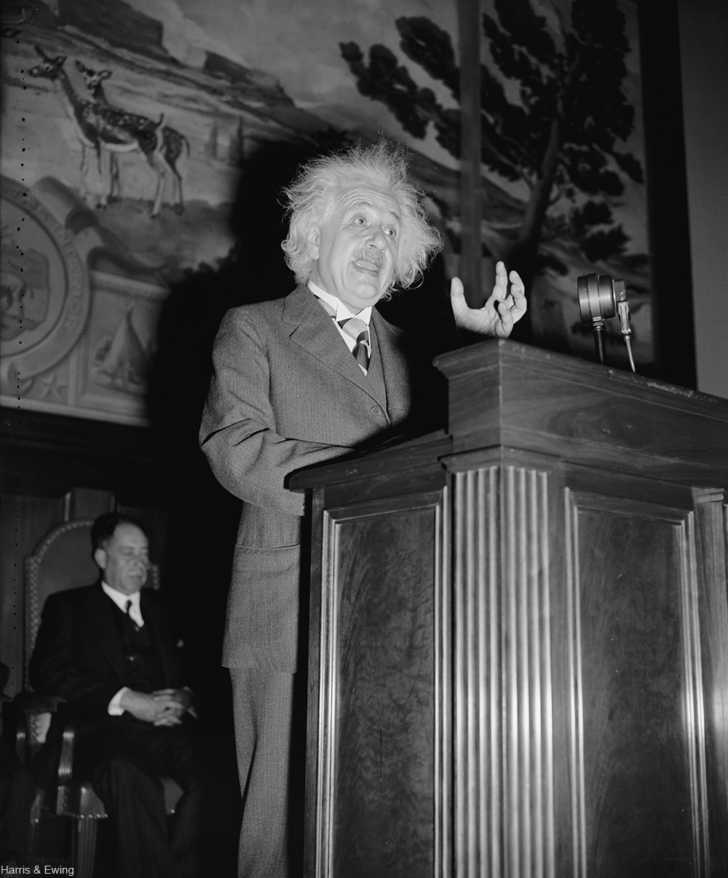Albert Einstein is known as being one of the smartest humans to have ever lived. His theory of relativity became one of the foundational ideas behind our modern day physics, along with quantum mechanics. His humorous quotes and shaggy hair made him a pop culture icon as well as a scientific one. There have been many speculations on what made Einstein so gifted, but most people tend to think he was just born that way, with a brain that was good at computation and spacial imagination. So, when he died in 1955 there was a scramble to get a hold of his brain and dissect it- even at the cost of going against his end of life plan.

Einstein showed talent at a young age, outshining his math tutor -a professional in the field- by age 12. It’s clear that he had a natural interest in (and proclivity for) mathematics, but he also showed promise in the subject of physics as well.
Einstein graduated with an academic teaching degree in 1900 and had published his theory of E=mc2 in 1916. By 1922 he had been awarded the Nobel Prize for Physics. Einstein eventually moved to the U.S. after facing years of anti-Semitism in Europe and elsewhere. In fact he was awarded his Nobel Prize in 1922 only because an influential voting member of the Nobel team claimed that Einstein shouldn’t win it for the year 1921 based on his Jewish heritage. One source claimed he was considered for the prize as early as 1910.
His theory would later be used to create the atom bomb, though he personally did not work on the bomb himself. Einstein was actually denied security clearance for the Manhattan Project due to his pacifist beliefs.

He died at the age of 76 at the Princeton Hospital in 1955 after suffering chest pains. Less than 7 hours from his death one Dr. Thomas Stoltz Harvey, a pathologist at the facility, had begun to perform an autopsy on Einstein’s body. He also carefully removed Einstein’s brain for further study.
Einstein had requested that his body be cremated and scattered unceremoniously since he didn’t want any fanatics attempting anything strange with his body or ashes. However, Harvey himself was keenly interested in Einstein’s brain to the point of fanaticism. The doctor later claimed that it was all a misunderstanding because Harvey assumed that such a high profile corpse would be naturally studied by Princeton staff.

Harvey was later able to get permission from Einstein’s son after the fact, but it included a clause that specified that the brain was only to be studied for scientific purposes and the results of that study to be published only in scientific journals. However, what Einstein’s family didn’t know was that Harvey had planned to give slices of the brain to researchers all over the world, while keeping a large portion of the brain for his own study.
To go against someone’s last wishes like is a grievous offense. Harvey may have obtained the grudging permission from Einstein’s son, but he lost his job over the incident. In a gruesome twist, he sent segments of the brain to Dr. Harry Zimmerman who had been one of Einstein’s physicians. Harvey also removed Einstein’s eyeballs and sent them to Einstein’s eye doctor, Dr. Henry Abrams.
Posterior view of brain, with labels added by Harvey. This photograph was used as a template for the annotated tracing…Posted by National Museum of Health and Medicine onFriday, April 5, 2013
Portions of Einstein’s brain were studied over the years, but the findings may not be objective. While some studies claim to see large differences in how Einstein’s prefrontal cortexwas formed, giving him a cognitive advantage, other reports are that the differences of Einstein’s brain may have been overstated due to his celebrity.
At the time of Einstein’s death his brain weighed what a normal brain would weigh and those who Harvey had sent cross-sections slices (mounted on slides) to found no difference to “normal” brains. This perhaps threw wrench in the works because Harvey had hoped to publish a paper on the uniqueness of the brain.

Harvey himself was no neuroscientist and would only have been able to study a brain in the sense of whether it had been diseased or not. So it’s puzzling why he kept the remainder of Einstein’s brain until his death.
Harvey’s descendants donated the remaining portions of Einstein’s brain to the National Museum of Health and Medicine upon his death, though portions of the organ have found their way into other museums as well, like the Mutter Medical Museum.
SKM: below-content placeholderWhizzco for DOT

